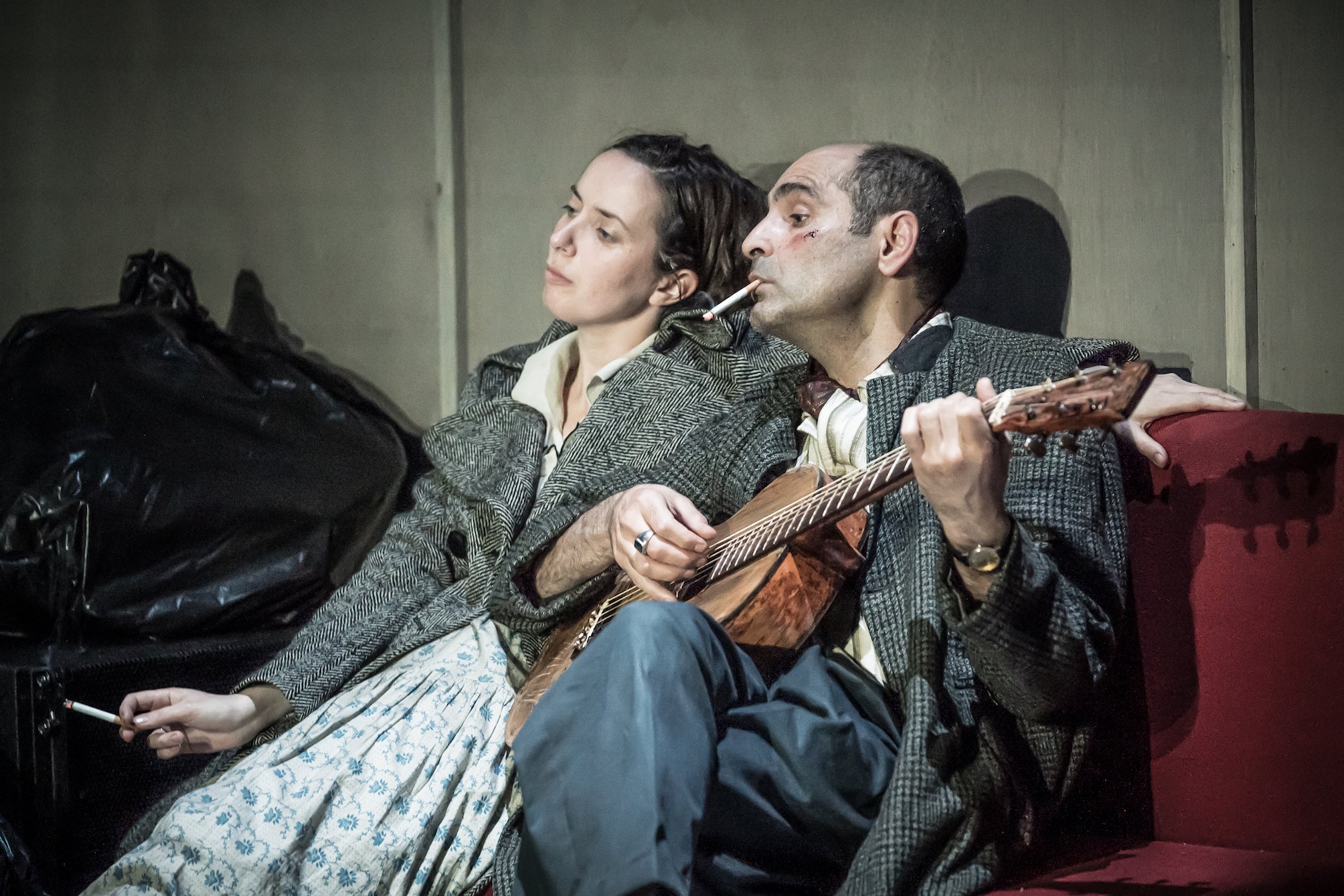The Two Character Play review, Hampstead Theatre: A strange, profound delight
Tennessee Williams’s experimental late-career work, which premiered at this very theatre in 1967, is revived in this ultra metatextual production

Your support helps us to tell the story
From reproductive rights to climate change to Big Tech, The Independent is on the ground when the story is developing. Whether it's investigating the financials of Elon Musk's pro-Trump PAC or producing our latest documentary, 'The A Word', which shines a light on the American women fighting for reproductive rights, we know how important it is to parse out the facts from the messaging.
At such a critical moment in US history, we need reporters on the ground. Your donation allows us to keep sending journalists to speak to both sides of the story.
The Independent is trusted by Americans across the entire political spectrum. And unlike many other quality news outlets, we choose not to lock Americans out of our reporting and analysis with paywalls. We believe quality journalism should be available to everyone, paid for by those who can afford it.
Your support makes all the difference.The Two Character Play is a complete and utter shambles. The set is half-built. Sound cues are missed. Lines are forgotten – or worse, deliberately skipped to spare the feelings of the two openly bickering actors.
I am talking, mercifully, about the play within a play, performed by actors playing actors in Tennessee Williams’s experimental late-career work, which premiered at this very theatre in 1967. The production itself is a delight: strange and profound.
Kate O’Flynn plays Clare; Zubin Varla is her brother Felice. They are the sole remaining members of a theatre troupe, whose entire cast and crew have abandoned them along with a note: “Your sister and you are insane.” Clare – who turned up to the theatre drunk and skittish, flinching at her own shadow – wants to cancel the performance. Felice insists that the show must go on. “Some necessary things are impossible,” says Clare. “And some impossible things are necessary,” says Felice. “We are performing tonight.”
And so they do. The only play in their repertoire they can feasibly perform alone is The Two Character Play – the tale of two reclusive siblings also, confusingly, named Clare and Felice, who have become town pariahs since their father killed their mother and then himself. While the “actors” are English, the “characters” are American. I don’t think that’s how it is in the script, but it was a canny move from director Sam Yates. Having O’Flynn and Varla start in their native accents, then snap into that Southern American drawl we so associate with Williams’s better-known work – A Streetcar Named Desire; Cat On A Hot Tin Roof; The Glass Menagerie – adds another metatextual layer to a play already thick with it. (A particularly awkward moment: when Clare looks into the audience and says, “Where are they? The ladies and gentlemen of the press?”)
The play within a play is meandering and hard to follow – especially since Clare is only half-committed, making cuts wherever she pleases, indicating those cuts to Felice by playing a C# on the piano. It’s funny and absurd at first, especially in contrast to Felice’s overzealous enthusiasm, as he simpers, over-acts, and scuttles back and forth from the stage to the sound desk in a frenzy. But it gradually becomes tragic.
Clare is based on Williams’s own sister Rose, who was in and out of institutions before being lobotomised at the age of 28. No wonder, then, that when Felice goes off-script and utters the word “confined”, Clare leaps back in shock and hammers that C#. Shades of Blanche DuBois emerge. O’Flynn – so brilliant in The End of History at The Royal Court and Blank at the Donmar Warehouse – plays Clare as both pathetic and defiant, childlike and world-weary. And despite his gravitas as Felice, Varla somehow seems like a boy playing at being a grown-up.
By the end, things have descended into a madness that borders on horror. This is a play about confinement and escape; about retelling our own stories in order to hide from them. Written and rewritten over the course of 10 years while Williams was struggling with addiction and mental health issues of his own, it was once described by the playwright as “my most beautiful play since Streetcar, the very heart of my life”. This production is empathetic and eccentric enough to do it justice.



Join our commenting forum
Join thought-provoking conversations, follow other Independent readers and see their replies
Comments